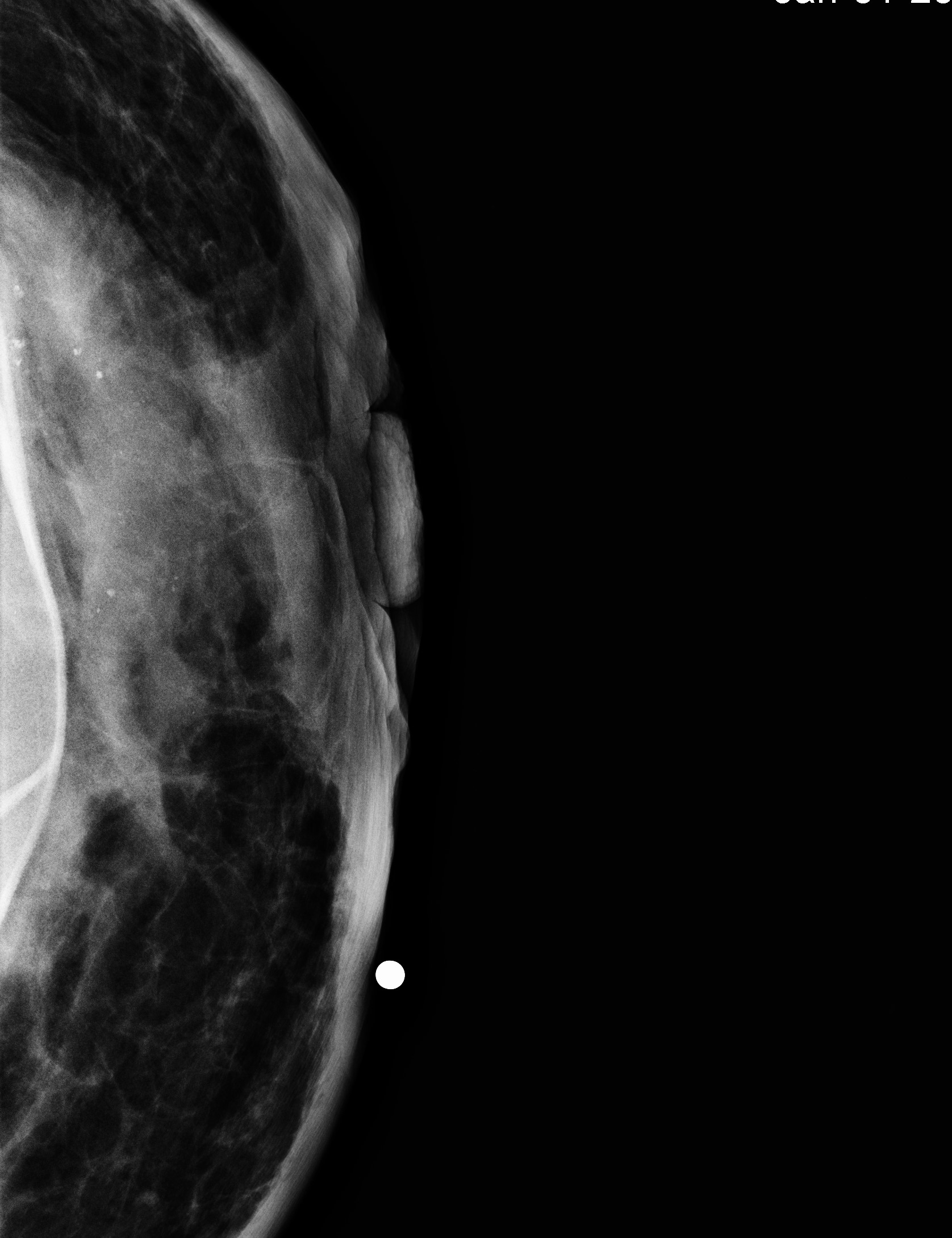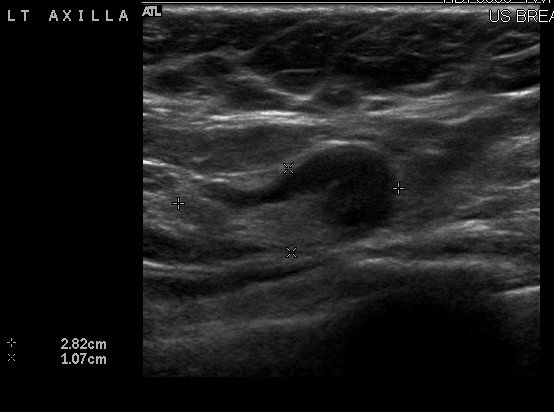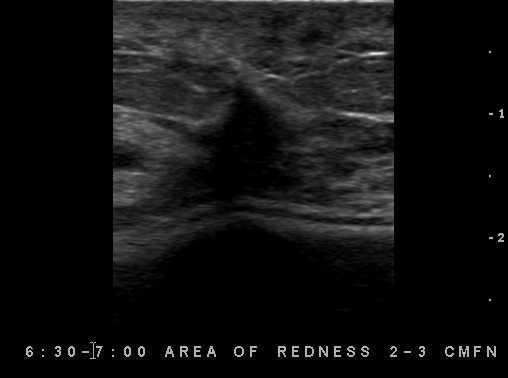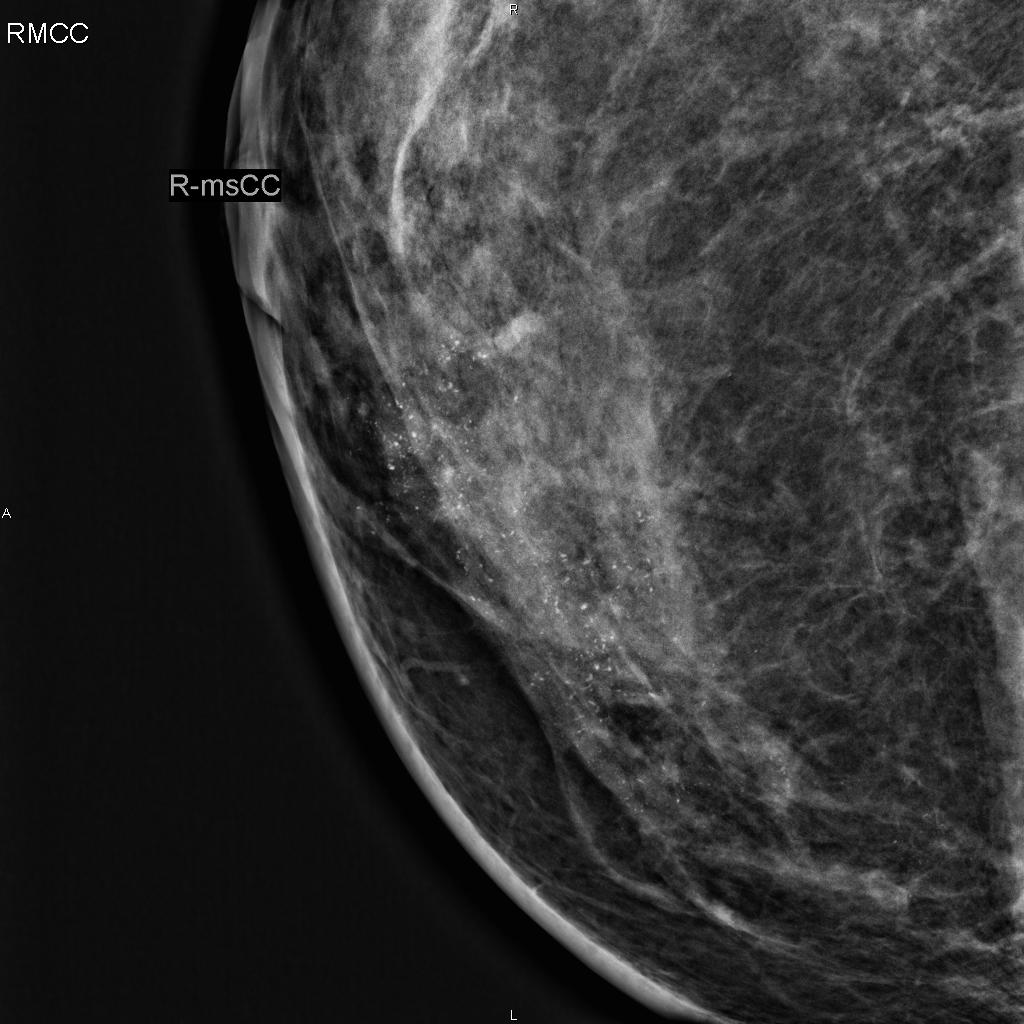Skin Inflammation
A patch of redness on the skin may be caused by many causes including eczema, an allergic reaction to fabric or body products, external factors such as exposure to an environmental agent, or result from an insect bite. If there is no known cause and the redness or inflammation does not subside within a reasonable time following local treatment, it is important to have this symptom assessed by your doctor. If your doctor determines that the skin redness and inflammation may have a cause in the breast, a diagnostic mammogram and a breast ultrasound are needed to determine the cause. The underlying cause of this symptom could be breast infection (mastitis) or rare forms of breast cancer. Mastitis in women who are not pregnant or breast feeding is uncommon. There are two rare forms of breast cancer that may manifest as skin changes.
Inflammatory Breast Cancer
A rare type of breast cancer where the cancer cells invade and block the lymph vessels of the skin leading to enlargement of the breast, thickening and redness of the skin involving more than a third of the breast. The skin tends to have a pitted appearance like an orange peel. The skin may appear bruised. There is usually a breast lump and enlargement of lymph glands in the arm. A diagnostic mammogram and an ultrasound will identify the underlying cancer in most cases. A definitive diagnosis requires biopsy of the skin and the finding of cancer cells blocking the lymph vessels of the skin. The signs of symptoms of this type of cancer can mimic mastitis. Careful evaluation is needed to recognize this form of cancer so treatment can be instituted early. Unexplained mastitis particularly in women who are not pregnant or lactating should be promptly investigated by a diagnostic mammogram and an ultrasound to exclude this kind of rare but aggressive cancer.
Inflammatory breast cancer is an aggressive form of cancer with rapid progression, it is therefore important to recognize it early. It occurs more often in younger women. This form of cancer often lacks hormone receptors. Hence hormonal chemotherapy may not be a treatment option. The outcome and survival for this type of cancer is generally poorer than for other types of breast cancer.
A mammogram showing diffuse thickening of the skin and underlying tumor with malignant calcifications in a woman with Inflammatory breast cancer
A swollen lymph gland affected by cancer cells in the axilla in the same patient
Breast ultrasound showing the tumor in the breast.
Paget’s Disease of the Nipple
Another rare form of breast cancer that presents as inflammation and itching of the nipple. This rare form of cancer is generally seen in older women (average age of 57 years) but has also been reported in adolescence and women in their 80’s. There may be an associated discharge from the nipple, flattening of the nipple and crusting of the skin may also be seen in this condition. A breast lump may also be felt indicating an underlying tumor. The cancer cells travel along the ducts to the nipple areolar complex and cause irritation and inflammation of the skin. Women may attribute this finding of an inflamed nipple to eczema or dermatitis and delay seeking the advice of a doctor. An itchy or red nipple and surrounding areola that does not resolve with topical treatment should prompt women to seek immediate attention of a Physician.
A diagnostic mammogram and an ultrasound will often find the underlying breast cancer. Skin biopsy will provide a definitive diagnosis by identifying cancer cells in the skin. A diagnostic mammogram and ultrasound may reveal additional tumors. The type of treatment will be dependent on findings of additional tumors and or involvement of the lymph nodes. Occasionally, Paget’s disease of the nipple may be confined to the nipple without an underlying tumor in the breast.
A mammogram in a patient with an itching inflamed nipple shows the underlying tumor with malignant calcifications.





